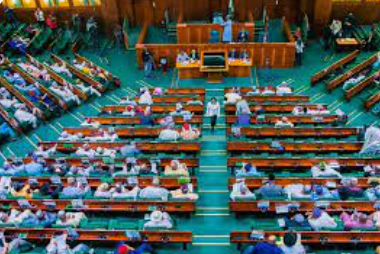Nigerian primary, secondary and tertiary institutions may soon have new curricula following the adoption of a motion on the floor of the House of Representatives during plenary on Thursday.
This was sequel to the House resolution on a motion titled “Review of the Nigerian curriculum for primary and secondary schools in line with current global market needs and contemporary realities,” moved by a member of the Peoples Democratic Party from Osun State, Bamidele Salam.
Leading the debate, Salam noted that
Nigeria’s traditional curriculum for primary and secondary schools faces challenges compared to advanced nations of the world.
He argued that while the curriculum equips students with knowledge “it prioritises rote learning over practical skills like critical thinking and problem-solving, which are very crucial in the current labour market.”
“The curriculum might have a stronger focus on national subjects potentially limiting exposure to global perspectives necessary to navigate the interconnected world,” the lawmaker said,
The existing curriculum, he said, fell short of developing critical thinking and problem-solving skills, arguing that “advanced economies prioritise fostering analytical abilities and encouraging students to approach challenges with innovative solutions.”
The lawmaker further noted that the curriculum in developed nations often integrates practical training and exposure to real-world scenarios, preparing students for the specific demands of the job market, unlike the current national curriculum.
“Integrating technology effectively into the learning process is crucial for success in today’s world. This area might require significant improvement in resource allocation and teacher training in Nigeria compared to its more technologically advanced counterparts.
“The House is aware that the world is in flux, skills needed to thrive are constantly evolving, demanding a critical evaluation of current educational systems.
“The traditional curriculum may not adequately equip graduates for the dynamic labour market to bridge this gap and thus, a comprehensive review of educational programmes at all levels is essential,” Salam said,
The House, following its resolution, urged the Federal Ministry of Education in conjunction with state Ministries of Education to “Conduct a comprehensive review of the curriculum across primary, secondary and tertiary institutions.”
It also urged the Federal Government to align the curriculum with evolving global market demands which emphasise skills like critical thinking, problem-solving, digital literacy, and adaptability.
The House also called on the government to “integrate practical applications, promote critical thinking and innovation, and enhance digital literacy.”
The Lawmakers further called on the Federal Government to “address resource disparities and ensure equitable access to qualified teachers, updated learning materials, and proper infrastructure.”
Consequently, the House mandated the Federal Ministry of Education to review its implementation strategy on the national policy of education.
The motion was referred to the House Committees on Basic Education and Services as well as University Education to ensure compliance.
